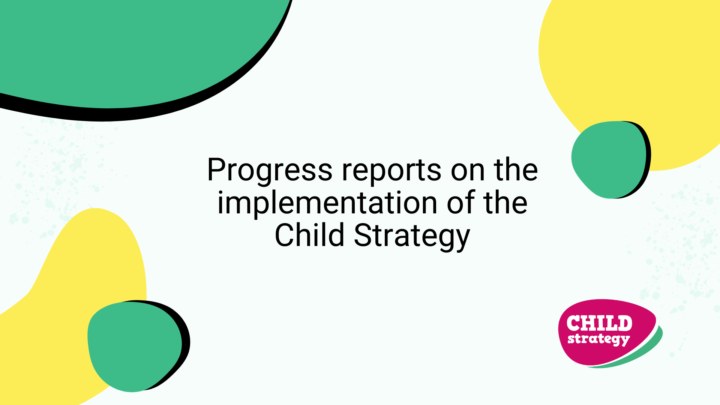Progress report on the implementation of the Child Strategy 8.11.2022
News
Measure 19:
Implementing campaigns for making an impact together with private sector actors and the public sector on reconciling work and family life
Work affects children’s day-to-day lives in many ways. When children are asked about the elements of a good life and safety, most replies highlight parents who spend time with and are there for their children. For this to be possible, working life must be flexible. In order to achieve this objective, the office of the Ombudsman for Children is implementing measure 19 of the Implementation Plan for the Child Strategy, which aims to disseminate good practices and strengthen understanding of the diversity of families and child- and family-friendly working life as a matter that is shared by society as a whole. The measure will be implemented through the communication and impact campaign Lasten vuoro (‘Children’s turn’) on reconciling work and family life in cooperation with private sector actors and the public sector.
The campaign has been designed by an extensive network of working life actors: the Central Organisation of Finnish Trade Unions (SAK), DNA Oyj, the Family Federation of Finland, the Ministry of Social Affairs and Health, Statistics Finland, the Mothers in Business MiB association, the Confederation of Unions for Professional and Managerial Staff in Finland (Akava), the Finnish Innovation Fund Sitra, the Ministry of Economic Affairs and Employment, Economy and youth TAT, the Central Union for Child Welfare, STTK, the Diverse Families association, Mieli Mental Health Finland and Kela.
The patrons of the campaign are actor and writer Jani Toivola together with Jaakko Hirvola, CEO of Technology Industries of Finland, and influencers Susanna Silvander-Rosti and Ella Rosti. The Diverse Families association will hold an online training session on family-friendliness that takes into account different family forms from 14:00 to 15:00 on Tuesday 15 November as part of the campaign. The campaign will culminate in the Lapset mukaan töihin event (‘Bring your children to work’) on 18 November 2022.
- Read more about the Children’s turn campaign on the campaign website (in Finnish and Swedish, lastenvuoro,fi)
- Children’s Day at Work (lapsetmukaantoihin.fi)
- Sign up for the online training session on family-friendliness that takes into account different family forms (in Finnish, surveypal.com)
Measure 28:
Developing an operating model to support children’s participation in societal decision-making using digital panels
The Ministry of Justice has opened an online service for digital participation, Digiraati.fi, which allows children and young people to participate in discussions on various topical issues. The service is available in Finnish and Swedish. The digital panel has been developed as a collaborative project and as part of the implementation of the National Child Strategy with the Ministry of Education and Culture, the centre of excellence for youth participation, the Finnish Red Cross and Tampere University’s ALL-YOUTH research project.
The panel website was opened for pilot use in spring 2022 as part of the Ministry of Justice’s online services to promote democracy. Based on the feedback received from users of the service, the development of the pilot version will continue throughout 2022-2023. The Ministry of Justice set up a steering group to support the development of the digital panel’s operating model in September 2022. The steering group will work until spring 2024.
The Ministry of Justice commissioned a consortium led by the SOS-Lapsikyläsäätiö foundation to take part in the development of the panel, especially from the perspective of children’s participation. The aim of the digital panel project is to design, test and create an operating model that supports the participation of children in society through the digital panel. The project also aims to plan training for facilitators of the children’s panel and communication for children about the panel.
The aim of the digital panel is to create an equal channel for participation and increase interaction between people of different ages and from different backgrounds. Another aim is to enhance the partnership between the central government, organisations and research organisations to promote the participation of children and young people. The digital panel also aims to provide authorities with an effective and nationwide channel for hearing the opinions of children and young people on social issues.
- Read more about the Digiraati digital panel (in Finnish and Swedish, Digiraati.fi)
- Visit the Digiraati project website (in Finnish and Swedish, oikeusministerio.fi)
- The Ministry of Justice’s press release on the introduction of the Digiraati digital panel (in Finnish and Swedish, oikeusministerio.fi)
